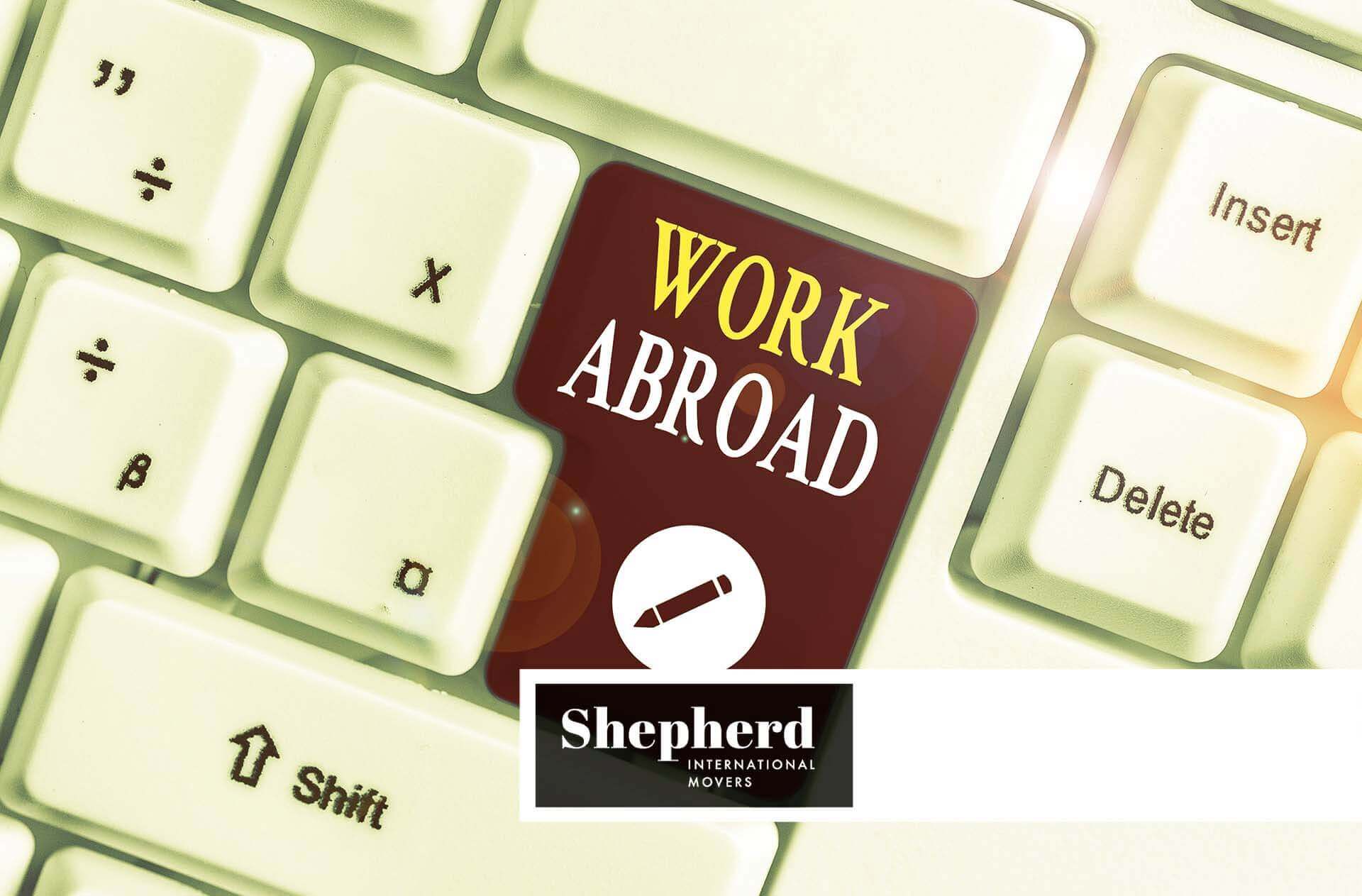

There are several relocation questions to ask the employer if moving to a different country for a job, which you should think about in advance. Large corporations frequently offer comprehensive relocation packages and strategies that significantly ease the lives of their employees. However, making sure you’re all set for a new adventure surely means knowing all about it, and there’s no better way than asking all the right questions.
Why Should You Prepare Relocation Questions to Ask the Employer Before the Move
Congrats on the new job offer! But before you sign on the dotted line, there are a few questions to ask the employer about relocation benefits. Knowing the key areas to touch on with your employer is crucial, after all, you’re relocating across the world, and you have to be sure everything is set.
Relocating for a new job is an exciting prospect, but it’s also a big decision – one that shouldn’t be made lightly. Be sure to ask your potential employer these four key questions about the relocation process before making any commitments. And good luck with the move!
#1 Who Will Manage Your Visa Requirements
If you’re wondering how to move abroad, ensure you make the relocation checklist first. That way, you won’t have to worry about forgetting things, as important as documents required to travel overseas. Also because there are a lot of visa criteria to be completed when relocating to a new nation for work.
It’s critical to understand who will be in charge of handling your visa requirements. Will your company handle all of it, or will you have to handle it all on your own? Although some employers might help with the visa application process, it’s wise to ensure everything is in order before you relocate. Answer the following questions and ensure you’re getting the right visa.
Do You Need a Job That Is Guaranteed?
If you don’t have a confirmed job, you might not be able to get some visas. Before boarding a flight, thoroughly review your contract and the accompanying paperwork.
What Kind of Visa Do You Require?
You’ll be offered numerous work permits. Make sure you get the appropriate visa and know the conditions of the one you need.
Can You Travel Once You Arrive in My Country of Employment?
There are frequent opportunities to travel during your working week. For more information, it is wise to review the terms and conditions of your visa.
Can You Switch Companies?
Some work permits limit you to just one position. This implies that after leaving your company, you will also need to depart the country within a specific time frame. That being said, consider all the benefits thoroughly this move will bring you.
What Is the Validity of the Visa?
Allowing your visa to expire could land you in trouble. You might need to fill out the form to have it extended or renewed depending on your employment circumstances.
#2 What Kind of Company Culture Can You Expect?
When you relocate to a new country alone or to a place with no familiar faces, loneliness is a problem you must cope with. Fitting in with the corporate culture, you can lessen homesickness and prevent depression in such a position.
Consult your prospective employer or the hiring staff to learn more about the corporate culture. Here are some things you should ask about:
- Are they correctly balancing work and leisure,
- Do they promote cooperation and teamwork,
- Are there some interesting activities,
- Are there sports teams at the business,
- How frequently do they support team-building activities,
- Do they offer to coach or mentoring programs?
What Are the Working Conditions in a Company?
Before accepting any sort of employment, make sure you read the job requirements and sign a detailed contract. That way, you’ll understand what is expected of your position. Not all nations have strict employment regulations, and even those that do may not always be upheld by employers. To ensure that nobody is taking unfair advantage of you and your labor, research the laws of the country where you intend to settle.

#3 Does the Company Cover Your Relocation Costs?
Check out if your employer will be paying for any (or all) of your moving expenses. Will they reimburse you for a percentage of your costs? Will they hire a professional international moving company to handle everything, from packing service to taking care of your vehicle? Knowing this in advance will help you budget for your move appropriately.
When you are relocated overseas for an amazing overseas position, many expatriate companies will cover the price of renting your home or an apartment. Ensure that all housing-related expenses are covered, or at the very least, that you are aware of the overall amount you will be required to pay. You might wish to look at reviews and the accommodations on the rental website.
Not only will you have a stress-free move, but you’ll also have more energy to deal with other stuff after the move – for example, dealing with culture shock and getting to know all the different customs of the locals.
Are You Being Provided With Global Health Insurance Coverage?
Before embarking on the new adventure, as an expat, you have to check what health coverage is provided. In fact, when you are working overseas, this is one of the crucial issues to be checked before accepting a position abroad. Your local health plan, which covers residents of the area, may be requested by some employers who work abroad. Most of the time, this is not advised because an international plan is much more suitable for expats and offers the all-encompassing care you will need.
Are You Receiving Life Insurance (Or Disability Coverage)
If it’s your first time to move, it’s better to be explicit about who is responsible for what costs. Your job will often offer you insurance. However, some businesses could insist that you purchase your life or disability insurance. So, take a bit of your time to understand travel insurance and check whether a standard policy will or won’t provide for your medical requirements.

#4 Will You Get an Expert Tax Advisor?
Working abroad sometimes entails paying taxes in both the home and host countries for many expatriates. Before asking the question, do your homework because the answer will vary depending on the country. You want to know where you stand and whether you need more resources. Important inquiries to pose to potential foreign employers include the following:
Foreign tax credits, agreements against double taxation, and other advantages are available to expats. Ask your company whether they will provide you with access to expat tax counsel and resources because you won’t be aware of these specifics until you have proper advice on this. Your expat tax expert will also be able to provide you with information on tax return due dates, requirements for residency, exemptions, and deductions.
#5 What Will Your Salary Be?
The most natural question surely is how much you will get paid. Be sure to grasp the breakdown and avoid being deceived about the money. Make sure you complete your homework and prepare for living expenses, general expenses, and travel expenses before you negotiate your wage expectations. After all, you have to be sure the salary will provide you with a comfortable life after moving internationally and having some money left over at the end of the month.

#6 Will Accommodation Be Provided by the Company?
There are numerous employers who provide options for lodging for their staff, including hostels, ski resorts, theme parks, and others. Before accepting any deal, do your research – the best way to do it is with Numbeo. Although lodgings provided by employees are frequently quite affordable, there is frequently a solid reason why.
Verify the type of housing you’ll have and, in particular, whether kitchen facilities are offered. Although this may seem like a minor issue, it might have an impact on your budget if you can’t prepare your own meals. If you can even find them where you live, eating out or ordering takeout might be pricey. Additionally, the cost of living should be deducted from your pay and not paid in advance. Make sure you do thorough research on how to live abroad so that you are prepared.
If Accommodation Is Not Included, Will the Company Help You Find a Place to Live?
The hardest part of spending a long time overseas can be finding the place to reside because affordable housing is in high demand and big cities are pricey. There might not be a lot of options for inexpensive housing, even if you work in a tiny town. So, besides having an efficient move and taking care of all relocation essentials, ensure you have the accommodation question settled.
Since accommodations are one of the biggest challenges during the overseas move, check some of the tips on how to find them in the following video.
#7 What Is Work/Free Time Balance Like?
Moving to a new country can be a daunting and stressful experience. In addition to all of the paperwork and logistics involved in relocating, you also have to get used to a new culture and climate and break the language barrier (unless relocating to Canada or to the UK). One of the biggest challenges you’ll face when moving overseas is finding the right work/free time balance. Here are some tips to help you find a balance that works for you.
- Set realistic expectations for yourself – Don’t try to do too much too soon. When you first arrive in your new country, take some time to adjust to your new surroundings. Explore your neighborhood, learn your way around the city, and get to know the people in your community. It will take some time to settle in, so don’t put too much pressure on yourself to find a job or make new friends right away. Give yourself some time to adjust and acclimate before setting any major goals.
- Make time for things you enjoy – Just because you’re living overseas doesn’t mean you have to forget about the things you love. If there’s an activity or hobby you enjoy, make sure to carve out some time for it in your schedule. Whether it’s going for walks in the park, taking classes at a local dance studio, or meeting up with friends for coffee, do what makes you happy and don’t let your work life consume all of your free time.
- Get organized and stay on top of your responsibilities – When you’re trying to balance work with free time, an organization is key. Create a schedule or use a planning app to track your commitments and make sure you’re staying on top of everything. This will help you make the most of your free time by ensuring that you’re not wasting it on things that can wait until later.
Will Somebody Help You Adjust to a New Environment?
Ask your company if there is a colleague who has also undergone an international relocation you can speak to. Ask them for advice on how to live on your own and get ready for your relocation and settle into your new house more quickly. Also, check for the expat communities that you can join and find out more about the country you’re calling home.

When You Get All the Answers, You’ll Be Ready for the Move
You’ve been asking around and doing your research, and you finally feel like you have a good handle on what relocating to a new country entails. After all, relocating to a completely different place, far away from home, is challenging. So, ensure you ask the right questions to your employer and move effortlessly.
FAQ
Will My Employer Cover the Full Cost of My International Relocation?
Before moving abroad, ask your employer exactly what relocation expenses they will cover. Some companies pay for flights, shipping, temporary housing, and even visa fees, while others offer a one-time stipend. Request a detailed breakdown of covered costs so you can plan your personal budget. It’s also wise to confirm how reimbursements are handled and whether receipts are required. Clarifying this early prevents surprise expenses. A transparent relocation policy ensures financial peace of mind throughout your move.
Does the Relocation Package Include Housing Assistance or Temporary Accommodation?
Many employers provide short-term housing or help you find permanent accommodation abroad. Ask how long temporary housing lasts and whether they assist with rental deposits or lease negotiations. Some companies also partner with local real estate agents to simplify the process. Knowing this in advance helps you plan your arrival and avoid hotel costs. It’s best to confirm who handles the logistics — HR, relocation specialists, or an external agency. Secure housing support makes settling in much easier.
Will the Company Assist With My Visa, Work Permit, and Customs Documents During the Move?
A good employer should assist with visas, work permits, and customs documents to make your international move smoother and legally compliant. Moving abroad often involves complex paperwork that’s hard to manage alone. Ask if the company uses an immigration consultant or relocation partner. Clarify timelines for approval and which documents you must provide. If your family is joining, ensure dependents are included in the visa process. Proper support avoids delays and unnecessary stress during your move.
Are There Tax or Financial Implications I Should Know Before Moving Internationally?
You should ask your employer about international tax obligations and financial adjustments before relocating to another country. Some companies offer tax equalization or global payroll support to balance costs between your home and host countries. Clarify where your salary will be paid and whether currency conversions affect income. Tax preparation help can prevent double taxation issues. Understanding your financial setup before the move keeps your transition smooth. It also ensures full compliance with both countries’ tax laws.
What Type of Health Insurance Will I Have While Living Abroad?
Your employer should provide health insurance that covers you and your family throughout the international move and after arrival. Health systems vary widely between countries, so comprehensive coverage is vital. Confirm if your plan includes medical emergencies, prescriptions, and dental care. Ask whether the policy begins immediately or after a waiting period. You may also need travel insurance to cover the transition phase. Reliable health coverage gives you peace of mind during and after your relocation.
Will My Family Receive Support and Resources During the Move Abroad?
A strong relocation package should extend moving support to your spouse and children to ensure the whole family adjusts well. Ask if your employer offers dependent visa help, school search assistance, or language lessons. Some companies also include spousal job placement support. Family relocation benefits reduce stress and make settling in easier. When your family feels supported, your international assignment runs more smoothly. This comprehensive help can turn a difficult move into an exciting new beginning.
Does the Company Provide Cultural or Language Training to Ease the Transition?
Employers should offer cultural and language training to help you adapt after your international move. These programs teach you local customs, communication norms, and workplace etiquette. Such preparation improves collaboration and helps avoid culture shock. Ask if family members can attend sessions too. A few hours of training can make daily life and work interactions much easier. Investing in cultural awareness ensures a smoother and more successful relocation experience.
Will Employer Help With Banking, Finances, and Cost of Living Adjustments After Moving?
Employers should help you set up local banking and manage the cost of living once you move abroad. Ask if they assist with opening a local bank account or provide relocation stipends for initial expenses. Some companies adjust salaries to match living costs in your new city. Clarify if payments are made locally or in your home currency. Understanding your financial logistics helps avoid confusion. Organized finances make the transition abroad far less stressful.
Who Will Be My Main Point of Contact for All Relocation and Moving Questions?
Before moving internationally, identify your primary relocation contact who can help coordinate every stage of your move. This could be an HR specialist, relocation manager, or third-party moving consultant. Having one consistent contact prevents miscommunication between departments. They can handle questions about shipping, customs, housing, and local orientation. Keep their details accessible during travel and arrival. A single point of contact ensures your move stays organized from start to finish.
Will My Employer Help With Shipping and Storage of My Personal Belongings?
You should confirm whether your employer covers international shipping or offers storage options for personal belongings during your move. Some companies handle door-to-door shipping, while others use relocation partners for packing and customs clearance. Ask if insurance for your items is included. If you have excess items, see if temporary storage is available in either country. Knowing your shipping logistics reduces risk and stress. Professional handling ensures your possessions arrive safely and on time.





